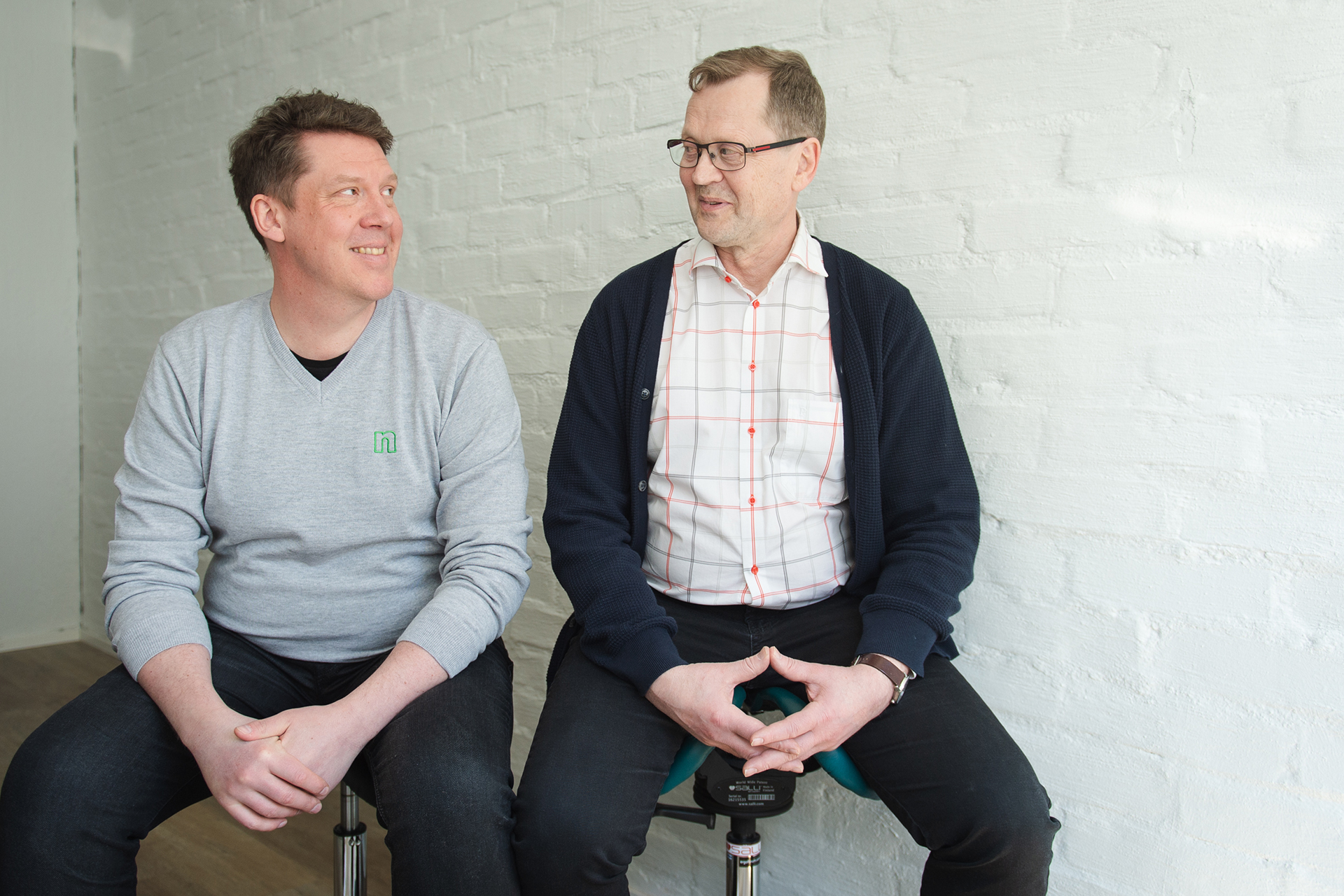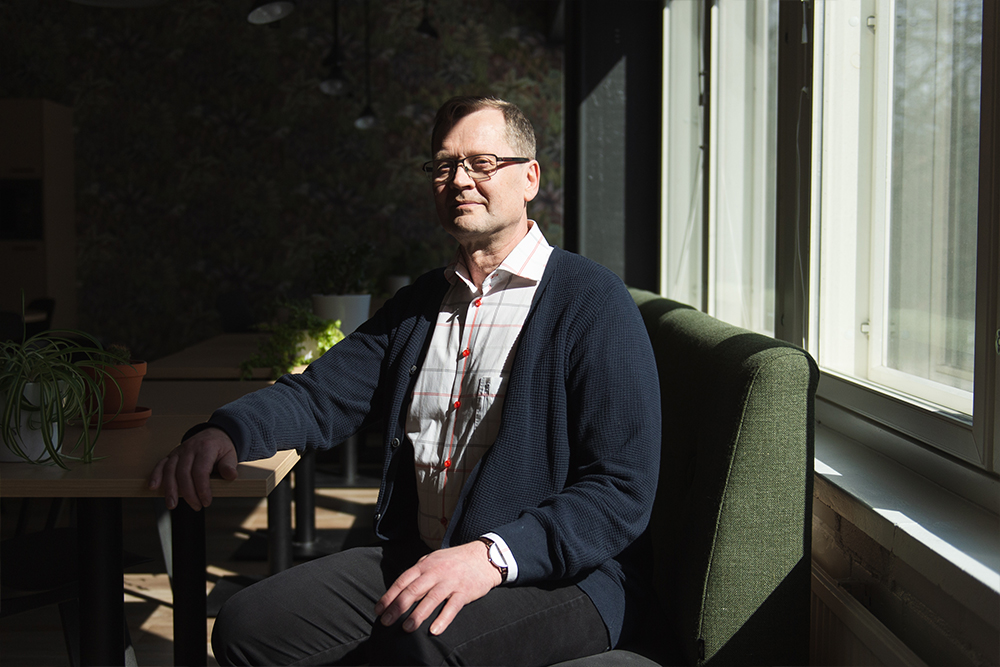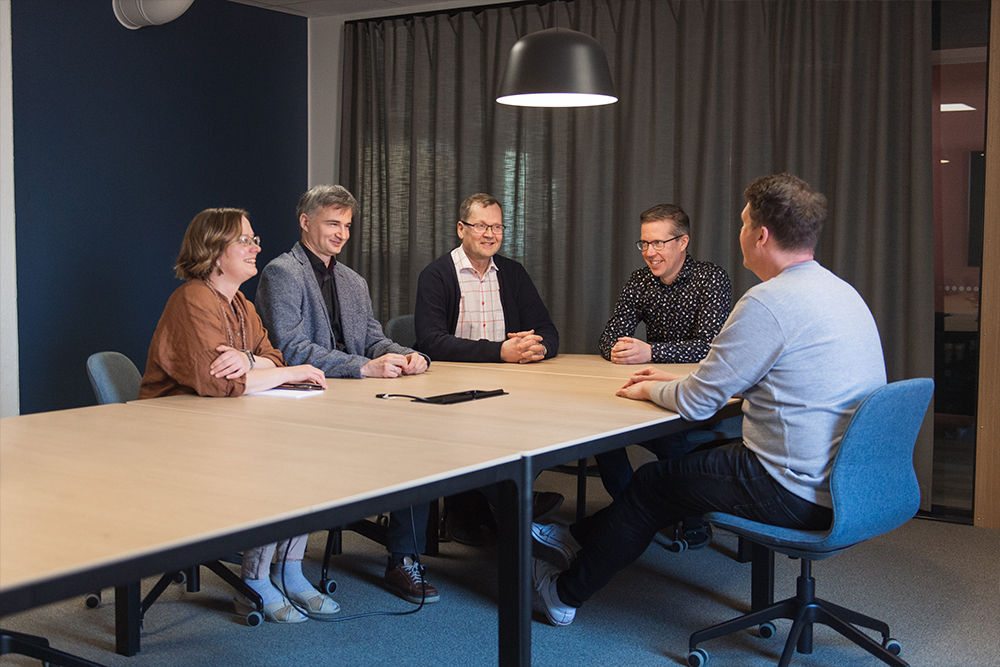 Kalle Haviala and Ilkka Pasanen of Netum are excited about helping to develop a system that affects the lives of many Finns.
Kalle Haviala and Ilkka Pasanen of Netum are excited about helping to develop a system that affects the lives of many Finns.
Case: The EURA 2021 system
The EURA system, set up for the management of projects financed using regional and structural funds from the EU, channels billions of euros to companies and organisations. Few system development projects have this level of social significance. EURA has a direct impact on Finnish business life and regional development, which is why the system is being developed in close cooperation with Netum and the Ministry of Economic Affairs and Employment.
"It's great to be involved in making a system that will affect the lives of so many people. It’s also great that the Ministry of Economic Affairs and Employment has trusted us with the task of renewing the system. This will also help us, as a company and experts, to develop and grow.”
According to a representative of the Ministry of Economic Affairs and Employment, Netum's can be trusted to handle the project independently and professionally. The representative points out that the Ministry’s experts will be responsible for the system and process specifications, but are not technical experts.
"The opportunity to be in direct contact with Netum's technical experts is of paramount importance and reduces the risk of ‘Chinese whispers’. When technical implementation experts can listen to and interpret our specialists’ needs and convert them into technological solutions, work will proceed without problems."
Agile methods provide more control when aiming at a moving target
Agile methods, where the final goal tends not to be precisely defined, are well suited to a system project like EURA. They also enable Netum's experts to focus on the work in hand, as precise objectives can be defined for short work cycles.
"We use agile methods to focus on creating added value for the customer. We start working on demos and proofs of concept, which the customer can use for sprint demos, giving us an indication of whether we're heading in the right direction," says Haviala.
-

Kalle Haviala believes that EU funding and its smooth and controlled distribution within the Union promote equality
-

Ilkka Pasanen was involved in developing the EURA system during the three previous EU programming periods.
-

The requirements of the new EURA 2021 system require Netum's experts to have solid expertise in both the new and old technologies.
Good user experience putting EU funding to efficient use
EURA is a statutory service, required by the EU, which is used to manage and monitor EU funding from regional and structural funds in Finland during the programming period. The system allocates authorisations, manages projects and the related payments, and monitors and audits projects. The objective is to create a smooth cash flow to prevent delays in project implementation due to late funding. Up-to-date reporting and transparency of information are also important.
EU funding through structural funds totalled almost EUR 1.3 billion for the period 2014–2020. Together with the national counterpart (50%), some EUR 2.6 billion of public funding has been available. These funds are managed via the EURA 2014 system.
“Companies and organisations apply for EU funding through the system, and EURA must be able to demonstrate that the applicants are eligible to receive it. The funding targets and methods have obviously been clearly specified and regulated,” explains project manager Ilkka Pasanen of Netum, who was involved in developing the EURA system during the three previous EU programming periods.
In terms of the end user or company or organisation applying for funding, the system is successful when the application process is as straightforward as possible. Good user experience also reduces administrative work by public authorities, e.g. in ELY centres and regional councils. User-friendliness is developed in each programming period. In the development of the new EURA system, end users can test demo versions to provide early user feedback.
EURA 2021 system moving to the cloud
Up-to-date digital services are needed for each EU programming period to meet its specific needs. It is typical, for example, for forms of aid and the activities for which funds are allocated to change from one programming period to the next. Like earlier versions, the new EURA system now being developed must meet the regulations and requirements of the new period.
During the 7-year programming period, technologies will become obsolete while new ones bring fresh opportunities. However, the overall lifecycle of the EURA system is long, because the data it processes must be stored. The new EURA 2021 system will be implemented on cloud computing. Combining techniques from different periods also places requirements on Netum's experts.
System development for peace and against inequality

Kalle Haviala and Ilkka Pasanen are delighted that the Ministry of Economic Affairs and Employment chose Netum again to implement the EURA system.
“We are helping to maintain peace in Europe. The idea of a union that collects money from its Member States and distributes it to the periphery goes all the way back to Winston Churchill. After all, it’s all about reducing inequality within the EU," sums up Kalle Haviala.